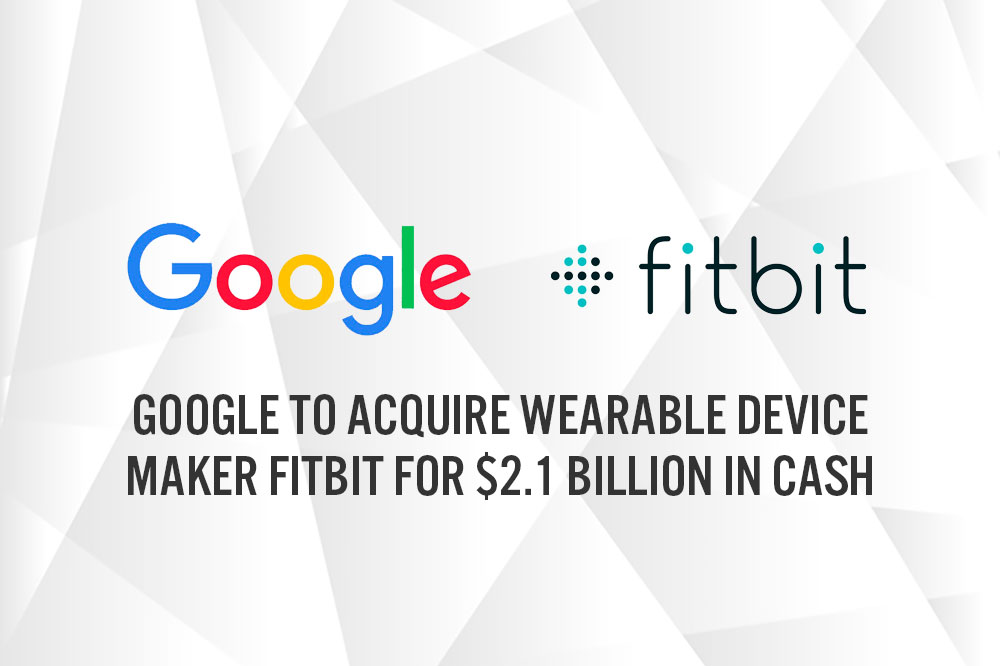
DIpil Das
On November 1, 2019, Fitbit announced an agreement to be acquired by Google for $7.35 per share in cash, representing a deal value of approximately $2.1 billion. The price represents a 19% premium to Fitbit’s closing share price of $6.18 on October 31 and a multiple of 1.4 times FY2018 revenues of $1.51 billion. The transaction is expected to close in 2020, subject to customary closing conditions and shareholder and regulatory approval.
Rationale for the Acquisition
Google, the maker of the Android smartphone and smartwatch operating system, is likely looking to acquire hardware vendors to advance the platform in what has become a fragmented market. In January 2019, Google acquired Fossil’s smartwatch technology for $40 million: Apple is the dominant player in the global wearables market, with a 25.8% share in 1Q19, compared to Fitbit’s 5.9%, according to Statista. Apple’s share in smartwatches is even higher, with a 46.4% share in 2Q19 compared to Fitbit’s 9.8% share, also according to Statista. Having more control over the hardware and software would enable Google to optimize both, similar to Apple’s approach. Increasing Android’s share of the wearables market would also generate more data for Google’s platforms.
Fitbit Profile
Fitbit characterizes itself as the leading global wearables brand and offers activity trackers, smartwatches, wireless headphones and a smart scale. Fitbit also claims to operate one of the world’s largest social fitness networks and databases of health and fitness data, and its platform includes software and interactive tools, including the Fitbit and Fitbit Coach apps, and the Fitbit OS for smartwatches.
Google’s Wear OS
Wear OS (previously known as Android Wear) is a version of the Android operating system designed for smartwatches and other wearables. It pairs with mobile phones and integrates Google Assistant technology plus mobile notifications. The OS runs on the hardware of many manufacturers, including Fossil, Intel, LG, New Balance, Qualcomm, Samsung, Huawei and TAG Heuer.